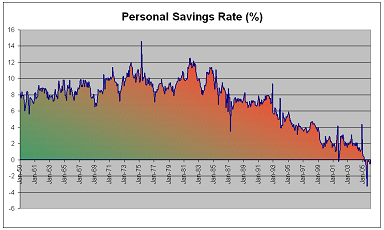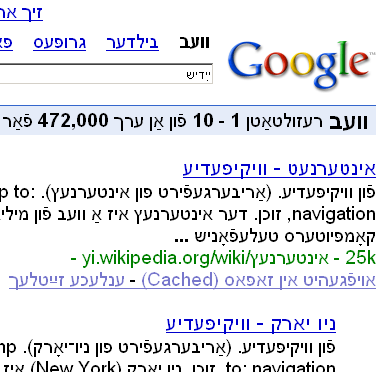Saving less
The experts keep saying the economy is doing well. GDP growth is good, and employment is at least keeping up with population growth. Real median income, however, is falling, as is the personal savings rate.

The above graph is from a data set that is available at the St. Louis Federal Reserve website. It shows that from 1960 to the early 1990s, Americans spent roughly 92% of their paycheck; about 8% was left over for savings. Following the economic recession in the early 1980s, the savings rate fell from around 10% to about 7% by the end of the decade. It is often said that we American consumers spent our way into the long prosperity between 1984 and 1990; the declining savings rate illustrates that.
The expansion between 1993 and 2001 was also marked by a declining savings rate, and the savings rate continues to fall through the current recovery from the last recession. From last summer until now, for the first time since the Great Depression, we have actually had a negative savings rate -- we Americans are spending more than we are earning. Clearly, this is not sustainable.
I'd like to point out an interesting anomaly in the chart. In December of 2004, the personal savings rate spiked up to 4.4%. The reason for this was the one-time dividend paid out by Microsoft that amounted to about 10% of the company's market value. This one event added something like $30 billion in dividend income to the U.S. total, which was not offset by increased spending on goods and services. Because distribution of the dividend was highly unequal (Bill Gates got over $1 billion of it), it did not represent any improvement for the vast majority of Americans.


